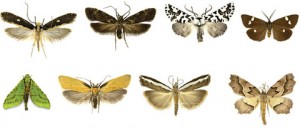 There were four children in my house this weekend, so the doors were constantly opened and left open. This became problematic because light attracts all kinds of bugs. When we were eating, 6-year-old Celia cries in horror as a bug lands on her face which prompts 2-year-old Jay to try and catch it while 5-year-old John grabs his mother in fear and 4-year-old Jimmy shrieks with delight “Look! Look! A butterfly has joined us for dinner!” While the white-washed flapping creature was really a bothersome, ugly moth, it made me think about Neighbour Procedure. Here we are, all staring at an innocuous being, an animal, an artifact, with completely different reactions and definitions.
There were four children in my house this weekend, so the doors were constantly opened and left open. This became problematic because light attracts all kinds of bugs. When we were eating, 6-year-old Celia cries in horror as a bug lands on her face which prompts 2-year-old Jay to try and catch it while 5-year-old John grabs his mother in fear and 4-year-old Jimmy shrieks with delight “Look! Look! A butterfly has joined us for dinner!” While the white-washed flapping creature was really a bothersome, ugly moth, it made me think about Neighbour Procedure. Here we are, all staring at an innocuous being, an animal, an artifact, with completely different reactions and definitions.
I felt this was the case for our class with Zolf.
DISCUSSION:
From a Coach House interview with Zolf:
“The whole book is drawn directly from texts I gathered in my research. Aside from some minor editing and additions, like adding ‘if’ in front of the statements in ‘a priori,’ the three line fragments that can be attributed to ‘me’ in the whole book are ‘no beauty here,’ ‘narrative faltering’ and ‘aware of the risk these phrases.’ Composing the pieces was a difficult process that took several years of intense research, note-taking, sifting and writing/editing. I felt it was important to use the collage method to engender a deliberate distancing effect – so that I wouldn’t get caught up in writing my story… In many ways, I saw my role in this project as more medium than author, and gathering feelings/affects was an important part of the composition process.
QUESTION: Let’s discuss your overall reaction to Zolf and the text as a whole now that you understand a bit more about her role as a “medium” instead of an author. What was your technique for reading/dissecting the text? I think if we limit our discussion to the overall work instead of individual poems first we can establish what type of work Zolf does, what her overall purpose is, and answer varied questions about subtext/intertext/metatext etc. I noticed some of your blog posts (like Maria!) discusses this issue. Some poems may be moths, others butterflies. For me, I first read through the entire book. I skimmed some sections and read other poems aloud. Then, I read her Afterthought section, did some research on her method, background and purpose and then returned to the text. What does this do to your experience?
The Israeli-Palestine conflict is often described as a “dispute over land claimed by the Jews as their biblical birthright and by the Palestinians, who seek self-determination.” QUESTION: Zolf collages words and phrases from various sources in order to destabilize what we understand about the conflict, and really humanizes the struggle by recontextualizing the language. What did this do to your understanding of the conflict? Do you have a different perspective? Did a particular poem stand out to you in terms of eliciting a pathos response? Does she desire us to empathize or is it something deeper?
QUESTION: I believe there are certain poems within her collection that really ask you to do research and learn more about the subject. Do you agree? If so, what work really forced you to pause and google? Is the entire work a metatext?
“a priori”
QUESTION: You all should have taken a look at Will’s research-infused close reading of the title story “a priori” – How does his close reading change or develop your opinion of the work? Think about the previous question about research, context, and content.
Zolf is concerned with the impact of words–their combined effort and variety of form in cultural, political, socio-economical contexts as well as religious texts like the Bible and the Quran, and it is very apparent in her opening poem. “a priori” is a rich poem of collected phrases all anchored by Zolf’s insertion of “If…” Zolf is really playing with language through her selection of puns and double entendres, and it is important to look through her entire work and ask QUESTION: What does Zolf say about language and words and translation in her work? How does Zolf feel about the various religious texts (Bible, Quran) as well as the varied geographical/political points of view? We might look at L’eveil (pg76) to discuss this.
Good questions. Let’s start here tomorrow.